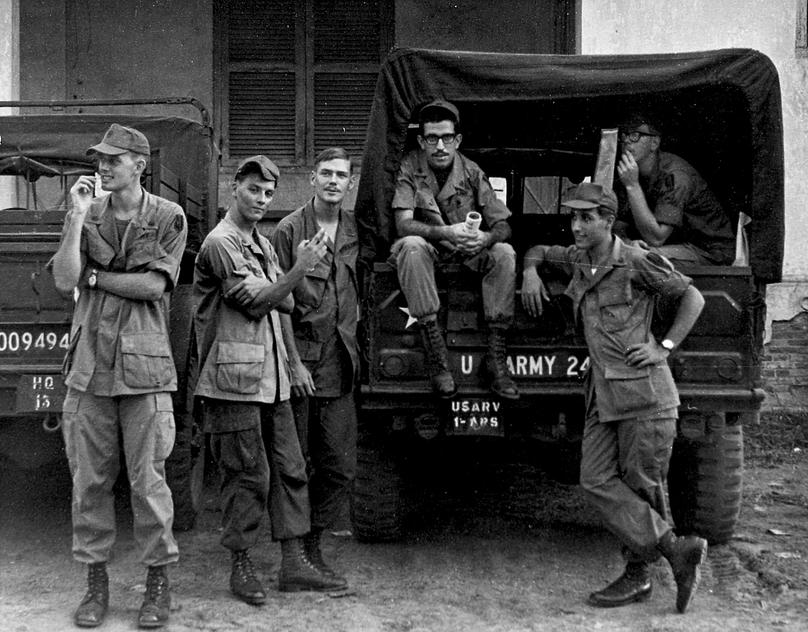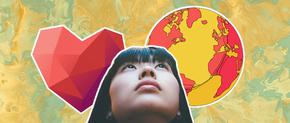The views expressed in our content reflect individual perspectives and do not represent the authoritative views of the Baha'i Faith.
What death is more wretched than to flee from the Source of everlasting life? – Baha’u’llah, Gems of Divine Mysteries, p. 36.
Through his ignorance man fears death, but the death he shrinks from is imaginary and absolutely unreal; it is only human imagination. – Abdu’l-Baha, The Promulgation of Universal Peace, p. 89.
For a long time, as a kid—probably like most kids—I had major denial about death. Kids don’t think about it much, I suppose. Why should they? When you’re young, as someone once said, death seems like a distant, unsubstantiated rumor. When you do take a moment to think about it—a grandparent passes away or a childhood pet goes to “dog heaven”—you think of it as happening to someone else, not to you. As a child, life stretches out in front of you in an unimaginable, eons-long perspective. You’re invulnerable, bursting with health, immortal. When you’re young, death doesn’t touch you very often, unless there’s a war on.
At 19, that became my unfortunate fate. Drafted into the United States Army and then sent to the war in Vietnam—a bloody, brutal chaos of death and needless destruction—I had to learn fast. More importantly, I had to deal mentally and spiritually with the very real possibility of my own imminent demise. When someone tries to kill you, as we used to say in the war, it definitely focuses the mind.

The war took many things away from me—my blanket faith in the good intentions of all people, my innocence about life, my youthful sense of certainty that justice would always prevail in the world, and my naïve belief that I didn’t have to think about death and that I wouldn’t ever die.
Of course, we all know that death is the last bus stop on everyone’s route. We know it intellectually, at least. From the age of three or four, when we first begin to comprehend that living things die, we think about death—but we rarely apply it to ourselves.
However, when I saw friends—living, breathing, energetic teenagers just like me—lose their lives in a hot second, I had to do much more than intellectually accept the prospect of my own death. Instead, I had to witness it, accept it deep in my heart and internalize it. I had to visualize my existence right along with my non-existence. My friends’ deaths, and a few near misses of my own, forced me to believe in it.
How can I describe the impact that belief had on me? It hit me with the force of a revelation. It left me speechless. For a long time, it dominated every thought. It shook me to my core. With so much death around me, I wore out a Baha’i prayer book in fourteen months, asking God for strength and detachment and spiritual qualities and help. I’m convinced those prayers got me through the war.
Depending on your current age and relative health, your own mortality may not seem like a pressing matter at the moment. But believe me, it will. Each of us must come to that startling realization sooner or later. Since death follows birth as surely as dusk follows dawn, we each have to confront it, or try to deny it. Denying it only means we “flee from the Source of everlasting life,” as the Baha’i writings say. Confronting it head-on, and accepting that we must prepare for our death while we can (which means now, since none of us had the option of buying the extended warranty), is the only healthy way I know of to deal with the inescapable fact of mortality. As Joseph Campbell says, “One can experience an unconditional affirmation of life only when one has accepted death…”
It strikes me, as I write this, that I have a great deal to be thankful for—especially my acceptance of the fact of my death. The war, despite its many horrors, gave me a gift by teaching me to believe that I would die one day, and for that clear knowledge, I truly do have enormous gratitude. That knowledge has allowed me to focus on an unconditional affirmation of every day I get, on walking a spiritual path through life, on attempting to center my attentions on the truth of the next stage of existence beyond this world, and on endeavoring to live joyfully, in the moment, knowing that this present moment is all we ever have. I haven’t always done a good job at those things, to say the least, but I keep trying.
So I want to pass on a piece of advice, if you’d like to hear it, something I learned in the war.
Here you go: no one can understand or resolve their natural human fear of death by only using their intellect.
Our brains alone don’t possess the tools or the insight or even the capability to process this one bedrock fact: today you are here, and tomorrow you will not be here. The human consciousness simply cannot comprehend its non-existence or its transformation to a spiritual state. Sages, philosophers and great thinkers have tried to answer this biggest human question of consciousness and death for millennia. Mostly, they’ve concluded that only a spiritual approach, a consistent, meditative and prayerful practice centered on your soul, will help you grapple and come to terms with your own impending death. The powerful reality of the human spirit does, the Baha’i teachings say, have the ability to understand and accept death:
…praise be to God, the world of existence does not culminate here. If this were so, existence itself would be sterile. There are many worlds of light. For even as the plant imagines life ends with itself and has no knowledge of our existence, so the materially-minded man has no knowledge of other worlds of consciousness.
But some there are who have found divine intelligence and have obtained spiritual understanding. They have the real sight. They know of the other worlds. That is why the prophets of God forfeited this world, renounced everything material and gave their hearts to the heavenly world. Were there nothing after death, Christ would not have accepted the cross; the prophets of all time would not have sacrificed their lives. They were in touch with the celestial world and they overlooked this transitory life. This is the fruit of the tree of creation – to be freed from the darkness of the planet in order to enter the worlds of light. This is the object of existence; this is the fruit of the tree of humanity… Were it not for the inspiration of the breath of the Holy Spirit, this life would be a farce.
May the radiant sea of reality become clear and unveiled of its clouds; may people become freed from the quagmires of the world of matter and soar upward to the city of light. – Abdu’l-Baha, Divine Philosophy, pp. 123-124.
Next: Transforming Fear into Love
You May Also Like
Comments

















On another note, I've wondered if one reason for the mind's denial of death may be that we are given by God some innate understanding, some spiritual programming, if you will, that our soul is everlasting - so that we will be assured on a fundament level that we will never cease to exist. This is just my theory, ...of course, but one that intrigues me.